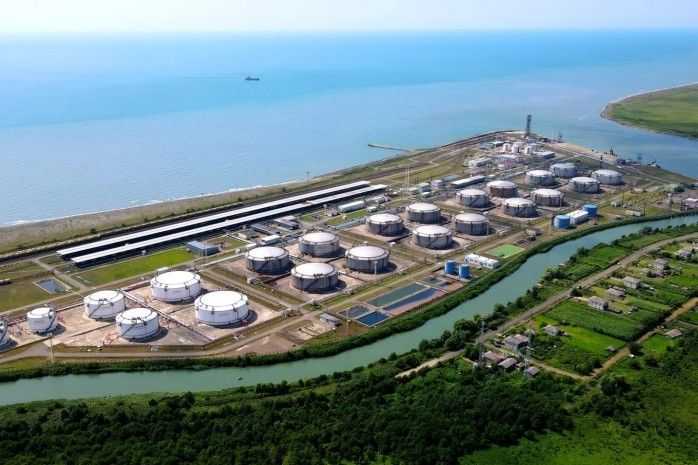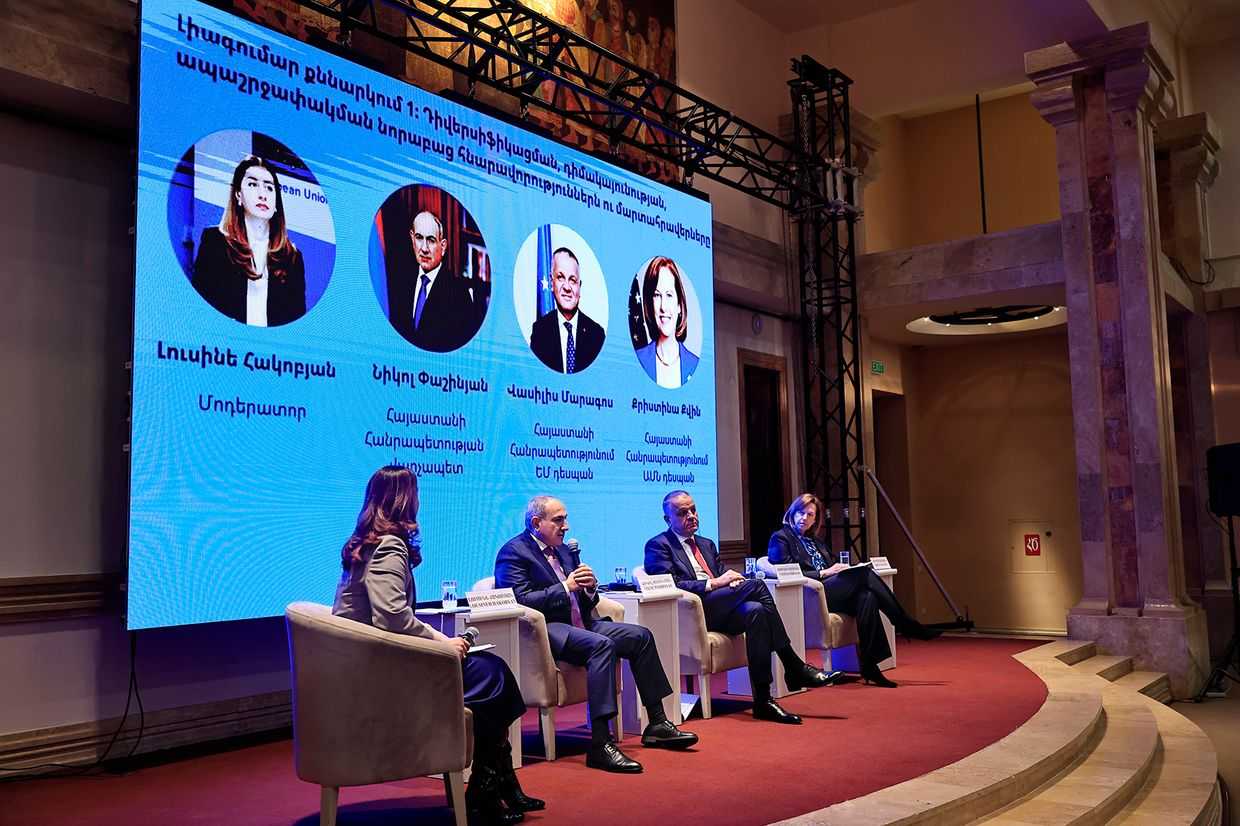
The European Parliament has adopted a resolution calling for the EU to consider imposing sanctions on Georgian Dream founder and former Prime Minister Bidzina Ivanishvili, due to the deteriorating state of media freedom in Georgia.
It was approved with 308 votes for and 218 against. The resolution was introduced by five parliamentary groups: the Greens–European Free Alliance (Verts/ALE), European Conservatives and Reformists (ECR), European People’s Party (EPP), Renew Europe, and the Progressive Alliance of Socialists and Democrats (S&D).
The ruling Georgian Dream Party, who was the target of most of the criticism, is a member of the S&D.
Amendments adopted to the resolution which were initiated by the EPP, Renew Europe, and the ECR called for the EU and other democracies to consider personally sanctioning Bidzina Ivanishvili for his ‘destructive role’ in Georgia’s politics and economy.
Georgian Dream chair Irakli Kobakhidze quickly condemned the resolution, calling it ‘not worth the price of hay’ and rejecting criticism for the jailing of third Georgian President Mikheil Saakashvili and his old-time ally, Nika Gvaramia.
The resolution also called on Georgian authorities to ‘review’ Gvaramia’s conviction and release both him and former president Mikhail Saakashvili from prison on humanitarian grounds in order to allow him to undergo proper medical treatment abroad’.
Kobakhidze alleged that the text ‘had nothing to do with European values’ and that it included ‘factual inconsistencies’ and ‘lies’.
‘It is extremely alarming that a such a high-level institution of the European Union has fallen victim to one of the world’s worst plagues, the so-called fake’, Kobakhidze complained during a press conference on Thursday.
Hopes for EU candidacy
The scathing resolution on democratic backsliding in Georgia came amidst tense suspense and anticipation in Ukraine, Moldova, and Georgia, all three of which officially applied for EU membership following the Russian invasion of Ukraine. The decision to grant EU candidate status must be unanimously approved by all 27 EU member states.
In the run-up to a crucial decision for the three countries expected later this month, speculation has emerged that even Ukraine may be offered a proposition less than full candidacy.
In a joint statement ahead of an EU Council meeting scheduled for 23–24 June, the leaders of the European Parliament groups singled out Georgia among the three hopefuls as being less deserving of candidate status.
They ‘strongly appealed’ to EU member states ‘to grant EU candidate status to Ukraine and the Republic of Moldova’.
The statement mentioned Georgia separately, calling on them ‘to work towards granting the same status to Georgia, fulfilling the legitimate aspirations of the Georgian people’.
In Georgia — a country with no land border with the EU and two territorial conflicts — the resolution exacerbated claims that Georgian Dream are undermining the country’s EU prospects.
The party, which has been running the country for over nine years, has faced increasing criticism in recent years for backtracking on institutional reforms, including of the judiciary, and marring the country’s reputation with a politically motivated series of prosecutions and imprisonments.
These include the latest high-profile jailing of former official and director of opposition TV channel Mtavari, Nika Gvaramia. On 8 June, Georgian Public Defender Nino Lomjaria described the verdict as ‘essentially unfounded’ and called on President Salome Zurabishvili to pardon Gvaramia.
The EU resolution on 9 June ‘condemned’ Gvaramia’s sentencing, adding that it ‘has highlighted the persistent mistrust in Georgia’s judiciary system’
The resolution also noted the mass violence targetting activists and journalists on 5 July 2021, and the lack of prosecutions of the organisers of the violence.
It also criticised mass surveillance of journalists by the security services and the kidnapping of Azerbaijani journalist Afgan Mukhtarli in Tbilisi.
There was also mention of criminal cases against Lelo party founder Mamuka Khazaradze, and the founders of independent TV companies Pirveli and Formula.









